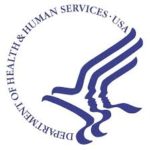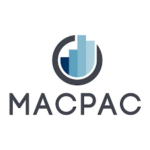The following is the latest health policy news from the federal government for October 25-31. Some of the language used below is taken directly from government documents.
 The White House
The White House
The White House has announced a new private sector pilot program to maintain uninterrupted access to seven pre-selected pediatric cancer medications. Pilot participants in this program, which is part of the Biden Cancer Moonshot, will develop stewardship standards focused on identifying shortage risks, promoting transparent inventory awareness, and fostering an effective approach to preventing patient care disruptions and maintaining consistent drug distribution to children and families facing cancer. The pilot will launch before the end of the year and run into 2025. Learn more about the program and the hospitals and other public and private sector participants in this program from this White House news release.
Medicare Payment Regulations
Four CMS regulations governing Medicare reimbursement in the coming year under the outpatient prospective payment system, physician fee schedule, home health prospective payment system, and end-stage renal disease prospective payment system have been approved by the Office of Management and Budget and should be published either later this afternoon or tomorrow. ASH will provide members with a detailed memo describing these four rules.
 Centers for Medicare & Medicaid Services
Centers for Medicare & Medicaid Services
- CMS has updated its reporting on many of the quality measures on the Medicare Compare site for hospitals. Learn more about which quality measures CMS has updated and the more than one dozen new measures it has added to the site from this CMS announcement.
- CMS has opened the Merit-based Incentive Payment System (MIPS) Value Pathways (MVPs) registration window for the 2024 performance year. Individuals, groups, subgroups, and alternative payment model (APM) entities that wish to report an MVP have until December 2 to register. Learn how to register from this CMS notice.
- The Consumer Financial Protection Bureau and CMS have issued a joint statement to protect people with Medicare living at or below the poverty line from unlawful medical bills. These people in the Qualified Medicare Beneficiary group represent about one in eight Medicare recipients nationwide. Federal law generally prohibits health care providers that accept Medicare from billing these people – referred to as “QMBs” – for cost-sharing, such as co-pays or deductibles. The agencies’ joint statement emphasizes that traditional Medicare providers and suppliers, Medicare Advantage providers and suppliers, and debt collectors can be sanctioned by CMS or be liable under federal law for improperly billing these recipients. CMS also has released new resources clarifying that providers must refund any improper charges, regardless of whether they received incorrect information about a recipient’s QMB status from Medicare Advantage plans. The joint statement explains that debt collectors may not collect on improper and inaccurate bills targeting Medicare beneficiaries or tarnish credit reports with improper and inaccurate bills. Learn more about the joint CMS/ Consumer Financial Protection Bureau action from the following resources: this CMS news release; the joint statement; this Consumer Financial Protection Bureau news release; a new CMS bulletin; and the formal guidance, which will take effect 60 days after it is published in the Federal Register.
- CMS has clarified telehealth billing requirements for Medicare diabetes self-management training. Find that clarification in this CMS fact sheet.
- Earlier this month, CMS’s National Training Program presented a webinar on Medicare and Medicaid fraud, waste, and abuse prevention, hospice fraud prevention resources, Medicare updates, and more. Find a link to a recording of the webinar here.
- Last week, CMS offered a seminar reviewing hospital price transparency resources available to hospitals, how to encode the data elements required by January 1, 2025, tips for ensuring that hospital machine-readable files conform to the requirements that went into effect July 1, 2024, and tips to support hospitals in meeting the accessibility requirements. Go here to find a link to a recording of that webinar.
- CMS has announced that a sub-state region of New York and the state of Rhode Island have been selected to participate in Cohort 3 of its States Advancing All-Payer Health Equity Approaches and Development (AHEAD) Model. Learn more about the program and Cohorts 1 and 2 from the AHEAD Model web page.
- CMS is forming a technical expert panel to advise a contractor it has hired to develop episode-based cost and value measures. With the help of the panel, the contractor will develop physician cost measures and patient relationship codes. Learn more about the panel and its work, the perspectives and areas of expertise CMS seeks from prospective panel members, the time commitment involved, and how to submit nominations from this CMS notice. The deadline for submitting nominations is November 18.
- The Medicare Shared Savings Program yielded more than $2.1 billion in net savings in 2023 – the largest savings in the program’s history, according to CMS. At the same time, participating ACOs earned shared savings payments of $3.1 billion, also the highest since the program’s inception more than 10 years ago. In addition, ACOs scored better on many quality measures than other types of physician groups and continued to demonstrate quality improvement. ACOs led by primary care clinicians had significantly higher net per capita savings than ACOs with a smaller proportion of primary care clinicians. Learn more about the Medicare Shared Savings Program, the savings it has produced, the financial benefits program participants have received, and the program’s impact on participating Medicare patients from this CMS news release.
 Department of Health and Human Services
Department of Health and Human Services
- HHS’s Health Resources and Services Administration (HRSA) has requested permission to introduce a new data collection instrument that it calls “Behavioral Health Integration Evidence Based Telehealth Network Program Outcome Measures.” Under the Behavioral Health Integration Evidence Based Telehealth Network Program, HRSA administers grants to support programs that seek to integrate behavioral health services, especially into primary care settings in rural and undeserved areas, using telehealth technology through telehealth networks and to evaluate the effectiveness of such integration. HRSA has created a set of outcome measures to evaluate the effectiveness of grantees’ programs and to monitor their progress using performance data. Learn more about the program, the data to be collected, and the expected burden of collecting this data from this HRSA announcement. The deadline for stakeholders to submit comments is December 27.
- HHS’s Office of Information Security and its Health Sector Cybersecurity Coordination Center have published an analyst note describing critical vulnerabilities in Oracle products, primarily affecting Oracle Fusion Middleware and its ADF Faces framework, which is used to build web interfaces for Java EE applications. This exploit enables attackers to execute remote code without authentication, which can lead to full system compromise, potentially exposing sensitive data and enabling lateral movement within a network. Given its critical nature, cybercriminals could potentially use these exploits as a part of larger attack chains, which might include deploying ransomware after initial system compromise. Learn more from this analyst note, which describes the vulnerabilities and attacks in greater detail and directs readers to resources for learning more about the vulnerability.
HHS Newsletters
- CMS – MLN Connects – October 31
- AHRQ News Now – October 29
- HRSA eNews – October 17 (includes funding opportunities)
HHS Videos
- HHS has posted a series of videos in which doctors answer questions about flu and COVID-19 vaccines, RSV vaccines for older adults, and vaccinations during pregnancy.
- HHS posted a video in which department officials and hospital and group purchasing organization industry leaders provide an informational briefing on strategies to conserve intravenous fluid products that currently are in short supply as a result to damage to Baxter International’s North Carolina plant.
Medicare Payment Advisory Commission (MedPAC)
MedPAC has published its annual update of its Medicare Payment Basics services. The 2024 Medicare Payment Basics describes how Medicare’s payment systems function. The series presents brief descriptions – generally five pages, with diagrams – explaining how Medicare calculates providers’ payments. The series includes an issue brief for each of Medicare’s 20 payment systems: for ACO payments, ambulance services, ambulatory surgical centers, critical access hospitals, clinical laboratory services, durable medical equipment, FHQCs and rural health clinics, home health services, hospice services, hospital acute inpatient services, inpatient psychiatric facility services, inpatient rehabilitation facility services, long-term-care hospitals, Medicare Advantage, outpatient dialysis services, outpatient hospital services, Part B drugs, Part D, physician and other health professionals services, and skilled nursing facility services. Find the 2024 Medicare Payment Basics series here.
 Medicaid and CHIP Payment and Access Commission (MACPAC)
Medicaid and CHIP Payment and Access Commission (MACPAC)
In 2016, CMS updated the regulations for Medicaid managed care and created a new option for states, permitting them to direct managed care organizations to pay providers according to specific rates or methods. These directed payment arrangements can be used to establish minimum or maximum fee schedules for certain types of providers, to require participation in value-based payment arrangements, or to make uniform payment rate increases. Several states use the directed payment option to require managed care organizations to make large additional payments to providers similar to supplemental payments in Medicaid fee-for-service programs. In 2024, CMS released a managed care rule that made additional updates intended to improve the oversight and transparency of directed payments. Now, a new CMS issue brief discusses the history of directed payment policy, highlights changes made in the 2024 managed care rule, and examines the use of directed payments based on MACPAC’s review of directed payments approved as of August 1, 2024. Learn more from the MACPAC issue brief “Directed Payments in Medicaid Managed Care.”
 Stakeholder Events
Stakeholder Events
MACPAC – Commissioners Meeting – October 31-November 1
MACPAC commissioners are holding their latest public meeting today and on Friday, November 1. Go here to register to participate virtually and find the meeting agenda here.
CMS – Healthcare Common Procedure Coding System (HCPCS) Public Meeting – November 6-8
CMS will hold a virtual Healthcare Common Procedure Coding System (HCPCS) public meeting to discuss its preliminary coding, Medicare benefit category, and payment determinations, if applicable, for new revisions to the HCPCS Level II code set for non-drug and non-biological items and services. The meetings will be held on Wednesday, Thursday, and Friday, November 6-8, from 9:00 to 5:00 (eastern) each day. Learn more about the purpose of the meeting, its agenda, how to submit questions and written comments, deadlines for submitting questions and materials or to request an opportunity to speak, and how to register to participate from this CMS notice.
CMS – Physicians, Nurses, and Allied Health Professionals Open Door Forum – November 7
CMS will hold an open-door forum for physicians, nurses, and allied health professionals on Thursday, November 7 at 2:00 (eastern). Go here to register to participate.
MedPAC – Commissioners Meeting – November 7-8
MedPAC commissioners will hold their next public meeting on Thursday, November 7 and Friday, November 8. Information about the agenda and how to participate are not yet available but when they are they will be posted here.
CMS – Hospital Open Door Forum – November 12
CMS will hold an open-door forum for hospital leaders on Tuesday, November 12 at 2:00 (eastern). Go here to register to participate.
CMS – Rural Health Open Door Forum – November 21
CMS will hold an open-door forum for rural health leaders on Thursday, November 21 at 2:00 (eastern). Go here to register to participate.
HHS – Office of the Assistant Secretary for Technology Policy – Annual Meeting – December 4-5
HHS’s Office of the Assistant Secretary for Technology Policy will hold its annual meeting in Washington, D.C. on Thursday, December 4 and Friday, December 5. Participants will hear about key issues at the intersection of health care, public health, policymaking, and technology through a variety of keynote speakers and main stage, breakout, and education sessions. Go here for additional information and to register to attend.
CMS – 2024 CMS Optimizing Health Care Delivery to Improve Patient Lives Conference – December 12
CMS will hold a virtual conference that will convene change-makers from the health care community and federal government to share innovative ideas, lessons learned, and best practices that strengthen patient health care delivery and access to high-quality care by reducing the administrative burdens that affect patients and the health care workforce. The conference will be held on Thursday, December 12 at 11:00 (eastern). Go here for further information and to register to participate.

 Centers for Medicare & Medicaid Services
Centers for Medicare & Medicaid Services Stakeholder Events
Stakeholder Events